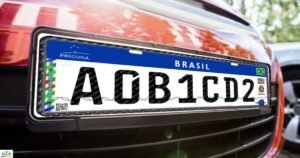In the realm of vehicle registration and identification, license plates play a crucial role. They serve as unique identifiers for vehicles, aiding in law enforcement, taxation, and various administrative functions.
An intriguing question arises- Can two cars have the same license plate? Let’s delve into this topic to understand the complexities and possibilities surrounding it.
Understanding License Plate Systems
Before delving into the possibility of two cars sharing the same license plate, it’s essential to understand how license plate systems operate. Different countries and regions have their own unique formats and regulations governing license plates. These systems typically include:
Format
License plates often follow a specific format comprising alphanumeric characters. The arrangement of letters and numbers may vary based on jurisdiction.
Uniqueness
In its jurisdiction, each license plate intends to be unique. This uniqueness helps authorities identify and track vehicles accurately.
Registration
When authorities register a vehicle, they assign it a distinct license plate number, which they record in the vehicle registration database.
Possibility of Duplicate License Plates

| Factor | Description |
| Human Error | Mistakes in manual registration processes |
| System Glitches | Technical errors within registration systems |
| Counterfeiting | Illicit activities leading to forged license plates |
| Unique ID | Systems designed to assign unique plate numbers |
| Verification | Checks to ensure availability and prevent duplicates |
The possibility of duplicate license plates exists due to various factors, including human error, system glitches, and counterfeiting. Effective verification processes and unique identification systems are crucial in mitigating this risk.
Regulatory Measures to Prevent Duplicates
To mitigate the risk of duplicate license plates, regulatory authorities implement various measures:
Unique Identification: The designers of registration systems assign unique license plate numbers to each vehicle. These systems often incorporate checks to ensure that no two vehicles are issued the same license plate.
Verification Processes: Registration authorities typically verify the availability of the desired combination to prevent duplicates before issuing a license plate.
Database Management: We employ robust database management practices to maintain accurate records of issued license plates. Regular audits and checks help identify and rectify any discrepancies or duplicates.
Case Studies

Case 1- Texas, USA
In 2016, Texas, USA, reported a rare occurrence of duplicate license plates. A system error had issued identical license plate numbers to two vehicles.
The Department of Motor Vehicles promptly rectified the issue by reissuing one of the license plates with a unique number while ensuring compliance with regulations such as ‘Are LED License Plate Lights Legal?’
Case 2- United Kingdom
In the United Kingdom, researchers have documented instances of duplicate license plates, which are often linked to fraudulent activities.
Criminals are known to create counterfeit plates matching those of legitimate vehicles to evade detection by automatic number plate recognition (ANPR) systems.
FAQ’s
How common are duplicate license plates?
Duplicate license plates are rare occurrences but can occur due to human error, system glitches, or counterfeiting.
What measures are in place to prevent duplicate license plates?
Regulatory authorities implement verification processes and unique identification systems to minimize the risk of duplicate license plates.
What happens if two cars end up with the same license plate?
In such cases, authorities rectify the issue by reissuing one of the license plates with a unique number to ensure proper vehicle identification.
Conclusion
License plate systems are designed to maintain uniqueness, but we cannot entirely discount the possibility of two cars having the same license plate. Human error, technical glitches, and fraudulent activities can contribute to such occurrences.
Regulatory measures and stringent enforcement help mitigate the risks associated with duplicate license plates. Ensuring the integrity of license plate systems is crucial for effective vehicle identification and law enforcement efforts.










